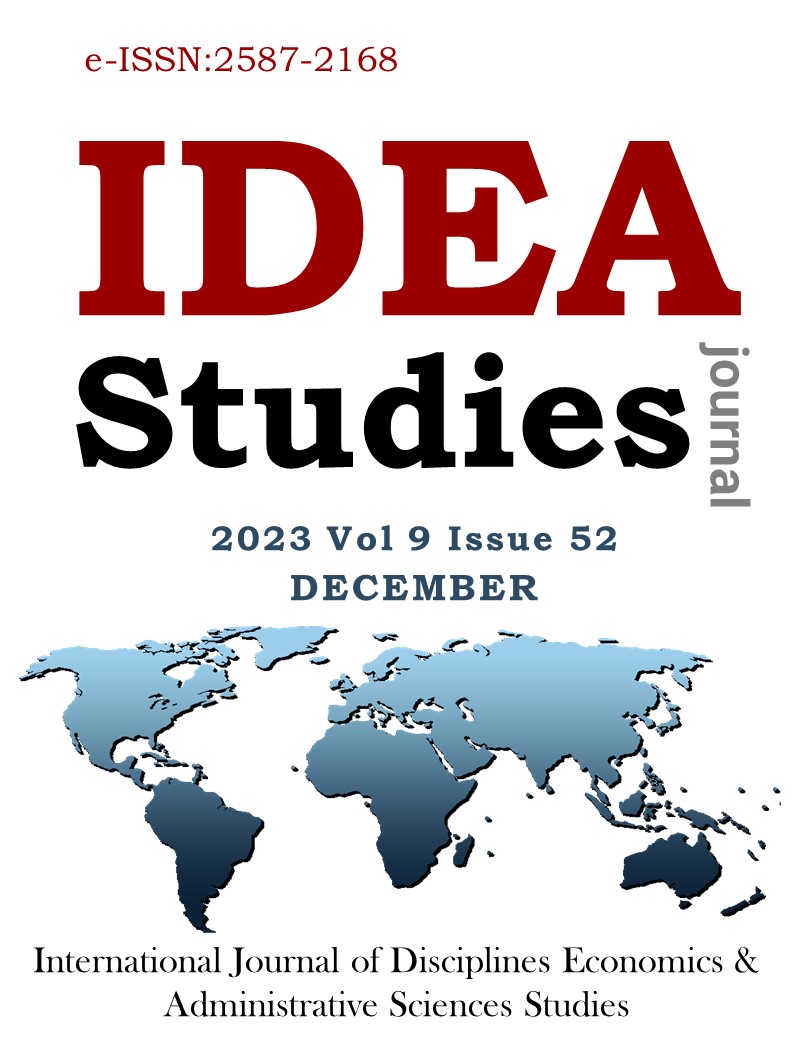Bir Otomotiv Endüstrisi İşletmesinde Örgütsel ve Bireysel Kariyer Planlamasının Çalışan Performansına Etkisi
Author :
Abstract
Kariyer planlama, kişinin organizasyondaki kariyeri ile ilgili yol haritasının belirlenerek bu alandaki hedeflerin ve gerekli araçların belirlenmesi süreci olarak tanımlanabilir. Kariyer kavramının temel olarak birey ve organizasyon olmak üzere iki perspektifi vardır. Bireysel Kariyerde kişinin kurumdaki konumunu anlayarak kendisini ileriki aşamalarda nerede görmek istediğine karar vermesi ve buna göre çaba göstermesi durumudur. Burada kişi kendini daha üst basamaklara çıkarmak için çaba harcamaktadır. Organizasyonel Kariyerde ise organizasyon içindeki personelin, hedef ve ideallerine ulaşmak için neler ortaya koyabileceği, nasıl bir yol haritası izlemesi gerektiği, iletişim ağı kurması gibi konularda yardımcı olmasına ihtiyaç vardır. Çalışan performansı kavramı, organizasyondaki düşük performanslı bireylerin daha verimli olmaları yönünde motive edilme çabalarını içermektedir. “Bir Otomotiv Sanayi İşletmesinde Örgütsel ve Bireysel Kariyer Planlamasının Çalışan Performansına Etkisi” adlı bu çalışmaya ilişkin çeşitli kaynaklardan yararlanılarak oluşturulan hipotezler, Konya ili Organize Sanayi Bölgesinde yer alan bir sanayi işletmesinde çalışan personele uygulanarak değerlendirilmiştir. Ölçek Rottinghaus, Kalafat, Kirkman, Rosen, Sigler ve Pearson'un çalışmalarından yararlanılarak oluşturulmuştur. Çalışmanın ana kitlesini ilgili firmadaki tam zamanlı çalışanlar oluşturmaktadır. Çalışmada 209 anket kolayda örnekleme yöntemi kullanılarak araştırmaya gönüllü olarak katılan kişilerden alınmıştır. Araştırmada kullanılan ölçeklerin açımlayıcı faktör analizine uygun olduğu tespit edilmiştir. Ölçeklerin Cronbach Alpha katsayıları yüksek bulunmuştur. Bu çalışmada, bu konuda yapılan araştırmalara paralel olarak, örgütsel ve bireysel kariyer planlama ölçüm verileri ile Çalışan Performansı arasında pozitif ve istatistiksel olarak anlamlı bir ilişki olduğu tespit edilmiştir (p<001). Ancak araştırmada cinsiyet, yaş, eğitim ve gelir durumu ile ilgili konularda farklı sonuçlara ulaşılmıştır. Cinsiyet değişkeni açısından Örgütsel ve Bireysel Kariyer Planlama ortalamaları (p>0,05) ile Çalışan Performansı ortalamaları (p>0,05) arasında fark bulunamamıştır. Yaş değişkenine göre örgütsel ve bireysel kariyer planlama ortalamaları arasında farklılık bulunmazken, çalışanların performans ortalamaları arasında farklılık olduğu tespit edilmiştir. Organizasyonel ve Bireysel Kariyer Planlama ölçüm verileri (p<0,05) ve Çalışan Performansı ölçüm verileri (p<0,05) eğitim düzeyi değişkenine göre anlamlı farklılık göstermektedir. Organizasyonel ve Bireysel Kariyer Planlama ölçüm verileri (p<0,05) gelir durumu değişkenine göre anlamlı farklılık göstermektedir. Çalışan Performansı ölçüm verileri (p>0,05) gelir durumu değişkenine göre anlamlı bir farklılık göstermemektedir.
Keywords
Abstract
Career planning can be defined as the process of determining the goals and necessary tools in this field by determining a roadmap related to a person's career in the organization. The career concept mainly has two perspectives, such as individual and organization. In an Individual Career, it is the case that a person understands his position in the institution and decides where he wants to see his self in the future stages and makes efforts accordingly. Here, a person is making an effort to get himself to the upper steps. In Organizational Career on the other hand, there is a need for the personnel within the organization to assist in issues such as what they can reveal, how to follow a roadmap in order to reach their goals and ideals, and to establish a communication network. Employee performance its concept includes efforts to motivate low-performing individuals in the organization to become more efficient.
The hypotheses created by using various sources related to this study called “The Effect of Organizational and Individual Career Planning on Employee Performance in an Automotive Industry Enterprise" were evaluated by applying them to the personnel working in an industrial enterprise in an Organized Industrial Zone in Konya through a survey. The scale was created by using the studies of Rottinghaus, Kalafat, Kirkman, Rosen, Sigler, and Pearson. The main audience of the study consists of full-time employees in the relevant company. In the study, 209 questionnaires were taken into account from those who voluntarily participated in the survey using the convenience sampling method.
It has been found that the scales used in the research are suitable for exploratory factor analysis. The Cronbach Alpha coefficients of the scales were found to be high. In this study, in parallel with the research conducted on this subject, it was found that there is a positive and statistically significant relationship between organizational and individual career planning measurement data and Employee Performance (p<001). However, in the study, different results were reached on issues related to gender, age, education, and income status. In terms of gender variable, there was no difference between the Organizational and Individual Career Planning averages (p>0.05) and the Employee Performance averages (p>0.05). According to the age variable, while there is no difference between the organizational and individual career planning averages, it has been found that there is a difference between the employee performance averages. Organizational and Individual Career Planning measurement data (p<0.05) and Employee Performance measurement data (p<0.05) show a significant difference according to the education level variable. The measurement data of Organizational and Individual Career Planning (p<0.05) show a significant difference according to the income status variable. The Employee Performance measurement data (p>0.05) do not show a significant difference according to the income status variable.





